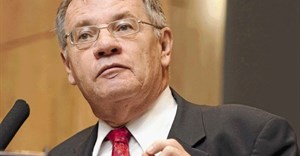
Subscribe & Follow
Wal-Mart hearings focus on efficiencies, labour
On Friday, 21 October 2011, the second day of the hearings, arguments were presented from Wal-Mart/Massmart, three government ministers and trade union Saccawu, that the Competition Tribunal's approval was correct, or that it should have stronger conditions, or that it should be overturned completely.
The ministers of economic development, Ebrahim Patel, trade & industry, Rob Davies and agriculture, forestry and fisheries, Tina Joemat-Pettersson argue that the merger should have far more stringent conditions than the voluntary supplier fund of R100 million, because the full effects of the transaction on local suppliers could not yet be quantified.
They also argue that the Competition Tribunal did not have all the information at hand when it made its decision and so it could not weigh up the public interest effect properly, particularly the assertion that Wal-Mart would use its international procurement "muscle" to substitute local products with cheaper imported goods.
Saccawu's counsel argued that the merger should be overturned because the Competition Commission did not conduct a full investigation and gave an unfounded recommendation to the tribunal.
Paul Kennedy, Saccawu's senior counsel, argued that because of that the Competition Commission was in "dereliction of its public duty."
The union also argued that the public interest factor weighed heavily in this case due to its size. They said that Wal-Mart was known to have an anti-union stance internationally and while Wal-Mart/Massmart had agreed to follow local labour laws it was no guarantee of the protection of workers rights in terms of benefits and job security.
However, Judge Dennis Davis appeared to reject Saccawu's demand that it should become the central bargaining representative with Wal-Mart/Massmart.
When Kennedy said: "The integration of the firms includes the transfer of knowledge and strategies on human resources, including presumably Wal-Mart's expertise at union-busting, and the union's status and (troublingly) its tenure under collective bargaining and recognition agreements was a subject of deliberate enquiry by Wal-Mart during its due diligence. This was a menacing sign in light of its track record of opposition to and avoidance of unions and collective bargaining."
Davis said that bringing labour issues into the competition court would have serious consequences as it may be seen as being more generous than the labour courts.
When hearing the government ministers' arguments in support of the Saccawu appeal, Davis pointed out that protectionism in the modern global economy was shown not to work.
Argument led by the ministers' senior counsel Rafik Bhana appeared to astound Davis by saying that the consumer benefit was not a fact in terms of the law when considering the case, but rather that the public interest debate should focus on improving the local manufacturing sector and job creation.
Davis said that the real issue was how does the South African supply sector deliver in the most efficient way possible, so that the lowest prices were obtained and at the same time jobs were created.
"It has been proven that protectionism in the globalisation game doesn't work," Davis said.
He then went on to say: "One of the distressing aspects of the tribunal is that it wouldn't interrogate properly the development of an adequate value chain - that is what it is all about."
Davis then said that Wal-Mart would not be a threat if SA had a serious manufacturing sector.
Later, Wal-Mart/Massmart senior counsel David Unterhalter argued that multinational suppliers counted for a very considerable part of branded goods sold in supermarkets and that it was the multinationals who determined the location of production and not Wal-Mart.
Davis then said he was worried about the other suppliers who were not multinationals.
But Unterhalter countered that by saying that local suppliers have the advantage over their international counterparts, with shorter distances to market, and that they were able to service their products more effectively than suppliers located at the other end of the world.
Davis argued that a central question his court had to answer was that of remedy and Unterhalter said there was no other option but for the voluntary supplier fund that Wal-Mart had set up and to be managed with the Competition Commission.
Unterhalter said the fund was agreed to "... because Wal-mart wanted to show that it encouraged local production."
Davis responded with: "I suppose that this is to bring SA manufacturers who lag up to par."
Source: I-Net Bridge

For more than two decades, I-Net Bridge has been one of South Africa’s preferred electronic providers of innovative solutions, data of the highest calibre, reliable platforms and excellent supporting systems. Our products include workstations, web applications and data feeds packaged with in-depth news and powerful analytical tools empowering clients to make meaningful decisions.
We pride ourselves on our wide variety of in-house skills, encompassing multiple platforms and applications. These skills enable us to not only function as a first class facility, but also design, implement and support all our client needs at a level that confirms I-Net Bridge a leader in its field.
Go to: http://www.inet.co.za












